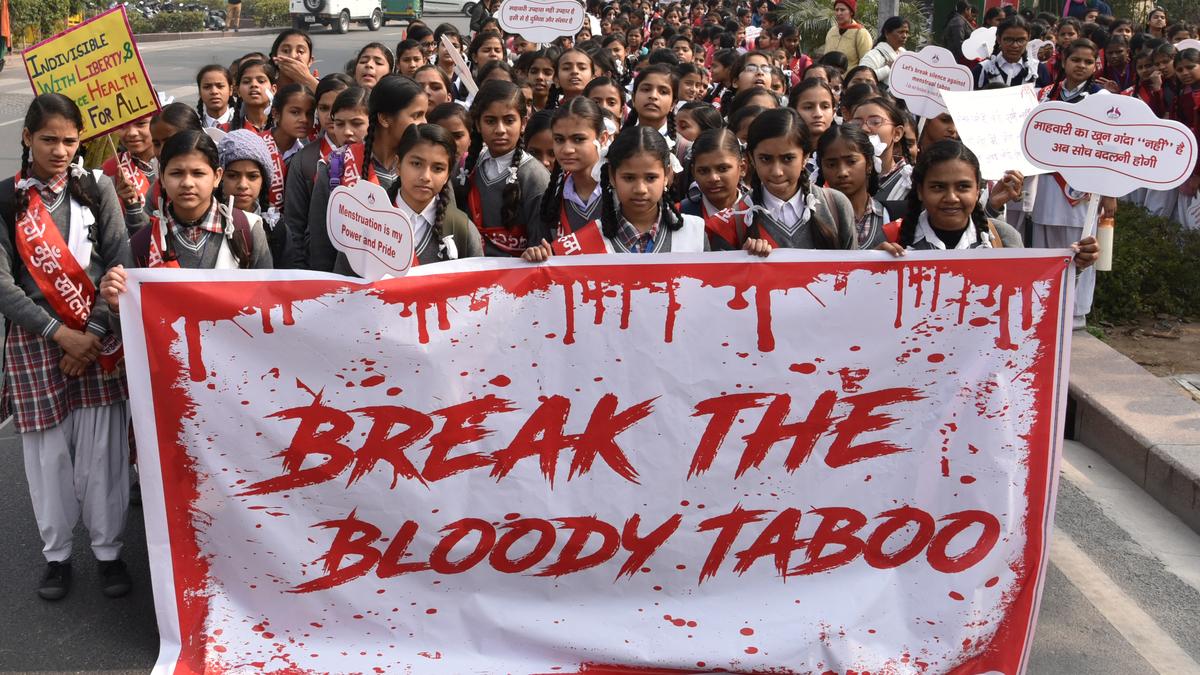
Explained | Menstrual hygiene facilities in Indian schools Premium
The Hindu
The Supreme Court on April 10 directed the Union Government to devise a uniform policy for ensuring menstrual hygiene for school children.
The story so far: The Supreme Court on April 10 directed the Union Government to devise a uniform policy to ensure menstrual hygiene for school children. The policy should ensure all government, government-aided and residential schools provide adolescent students with free sanitary napkins and access to a vending and disposal mechanism, the Bench said. Schools should also be equipped with separate washrooms for girl students.
Absence of menstrual hygiene and awareness drives “period poverty” — or the lack of access to sanitary products, toilets, waste management, handwashing facilities and menstrual hygiene education — globally. Studies show period poverty has a ripple effect: girl students drop out of school, are pushed into child marriage, and are more like to experience domestic violence, infections, reproductive illnesses, malnourishment and poor mental health.
In 2019, Sanjay Wijesekera, then UNICEF Chief of Water, Sanitation, and Hygiene, said: “Meeting the hygiene needs of all adolescent girls is a fundamental issue of human rights, dignity, and public health.”
The Bench, comprising Chief Justice D. Y. Chandrachud and Justices P.S. Narasimha and J.B. Pardiwala, responded to a PIL which sought directions on two accounts: that governments ensure schools provide girl students from class 6 to 12 with sanitary pads, and that there be a separate toilet for girl students.
These should also be padded with State-wide measures to ensure washrooms have clean running water and waste disposal facilities. Out of 10.8 lakh government schools, 15,000 have no toilets and 42,000 lack drinking water, Education Minister Ramesh Pokhriyal shared in 2021.
“A safe place for changing and disposal of used pads is hardly available in rural areas,” says Rajesh Srivastava, a research officer at Public Health Resource Network.
Investment in social awareness programs is also needed, the petition argued, adding that inadequate menstrual hygiene management (MHM) is a barrier to education. The SC nominated the Ministry of Family Health and Welfare to coordinate with the Jal Shakti Ministry and Ministry of Education to implement policies over four weeks.

Udhayanidhi Stalin urges cadres to launch campaign for securing 200 seats in 2026 Assembly elections
Udhayanidhi Stalin urges DMK members to gear up for 2026 Tamil Nadu elections, aiming for 200 seats.










